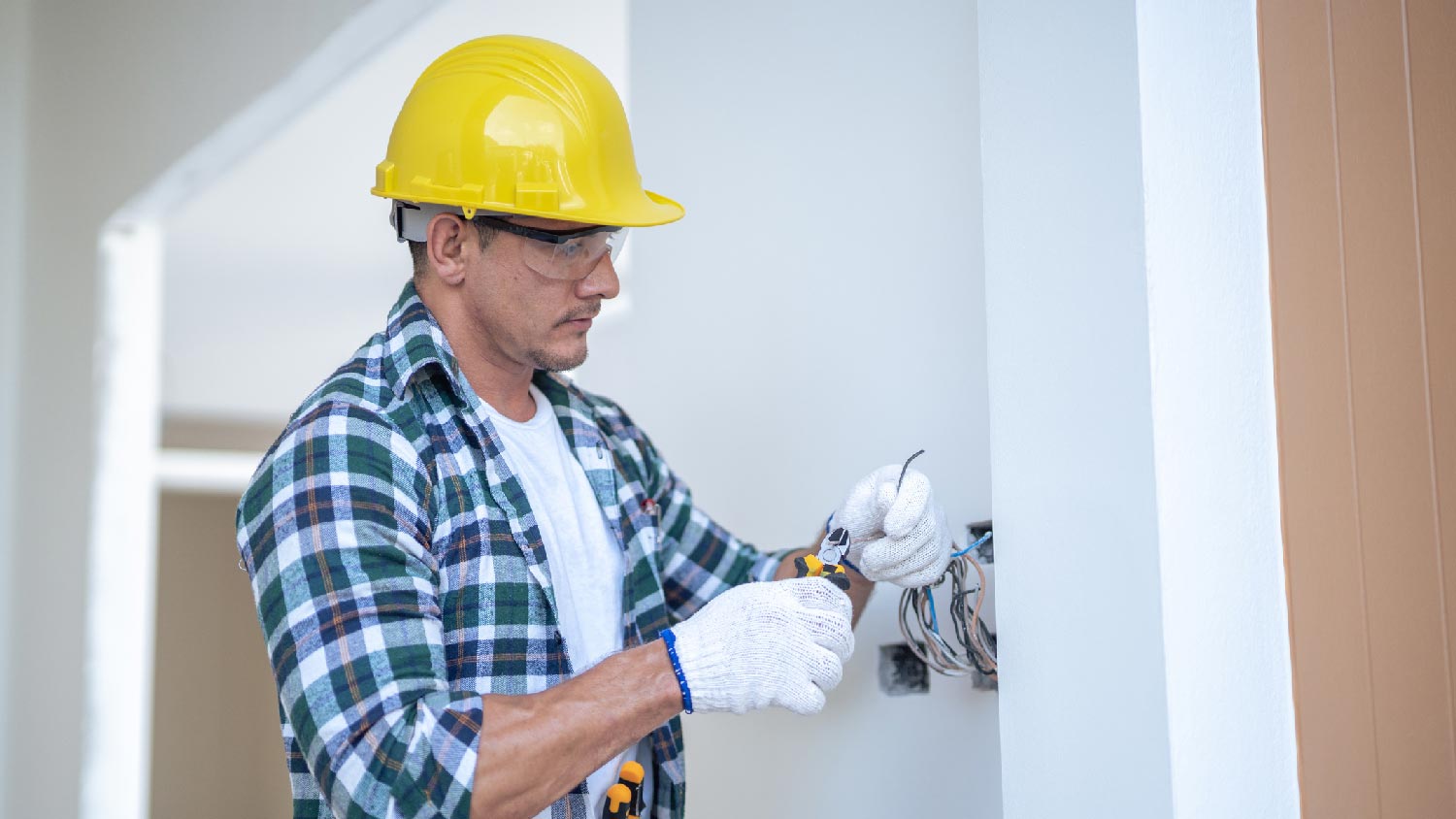
Did your HVAC pro recently tell you that you may need a new disconnect? If so, start budgeting for the cost to install an AC disconnect here.
Policy pointers from the pros


Home insurance policies tend to cover damage repairs and liability issues related to unpredictable events like fires, bad storm damage, and more.
If electrical wiring is damaged as part of a sudden event, a home insurance claim often covers part of all of the wiring repairs.
There are conditions where insurers are likely to deny a wiring claim, including if wiring was outdated or the wiring work isn’t up to code or permitted correctly.
Some types of old wiring are particularly less likely to be covered by insurance, such as aluminum wiring.
If you’re preparing for a major home wiring project, it’s essential to know whether your homeowners insurance covers electrical wiring. Rewiring and wiring repair projects can be expensive—rewiring an entire house costs about $2 to $4 per square foot for a mid-sized home.
Your home insurance often has ways to successfully claim wiring repair costs following a sudden disaster or other covered event. Let’s review when home insurance covers wiring projects and when it doesn’t.


Let’s focus on the cases where home insurance is most likely to cover your electrical wiring project under “dwelling coverage” and similar insurance:
Wiring was damaged because of a sudden, expected event: Homeowners insurance specializes in coverage from unexpected events, including a house fire, damage during theft, or severe damage from a lightning storm. If it’s an accident, chances are home insurance will cover at least some cost of repair for electrical wiring.
No recent history of shorts or electrical failures: Insurance companies may look for past issues with your home’s electrical system when considering a claim.
Wiring work completed by a certified electrician: If you can prove that certified electricians completed the wiring work in your house, home insurance is more likely to cover wiring damage.
Home warranty for wear and tear: A home warranty and other add-ons cover replacements due to expected wear and tear and similar causes. They can pertain to systems like plumbing, but can be extended to aged electrical systems, too.
Specific inclusion for electrical faults: Electrical faults are another tricky area where homeowners insurance often doesn’t pay claims. But you can add fault coverage to your policy to ensure damaged wiring will be covered if a short occurs.
The language in your home insurance policy and the history of your electrical wiring are particularly important. Here are the top situations where wiring won’t be covered by insurance:
Wiring wasn’t damaged in a sudden event: Homeowners insurance typically only covers unpredictable events. For a common example, if a leak in your plumbing leaks into a wall and damages wiring, then home insurance is unlikely to pay for wiring work because the leak wasn’t a sudden event and could have been handled by the homeowner.
The wiring was old: If wiring is decades old, insurance will often deny a claim. Some home insurance has specific language about the age of the wiring.
Neglect of preventative maintenance: If a homeowner could have done maintenance that prevented the accident, home insurance won’t cover any fixes. If an electrician’s inspection could have caught the problem before damage was done, an insurance payout is unlikely.
Outdated wiring type: Old wiring types like aluminum wiring or knob and tube wiring needs to be specifically covered by your policy. If it isn’t, the policy won’t cover its replacement or repair.
Damage caused by DIY work: Many electrical projects are DIY, including replacing outlet receptacles, light fixtures, and even adding a new outlet. But for significant wiring work, it's best to hire a local electrician. Otherwise, insurance companies may use past DIY work as a reason to deny your claim.
Insurance doesn’t cover the damaging event: In some cases, insurers won’t cover certain events Two common examples are floods in flood-prone areas and wildfires in fire-prone areas.
From average costs to expert advice, get all the answers you need to get your job done.

Did your HVAC pro recently tell you that you may need a new disconnect? If so, start budgeting for the cost to install an AC disconnect here.

If your outside electrical meter box has sustained wear and tear, it might be time for a replacement. How much it costs to replace an electrical meter box depends on labor, model, and box type.

Updating broken and outdated light switches isn't as tricky as you might think. We'll cover the considerations and cost to install a light switch in this guide.

Having dependable electricity is more than just a convenience—it’s a necessity. Here’s when to hire an electrician to keep your home up and running, safely.

Safety outlets cut power to connecting devices for various reasons. Learn how to reset GFCI outlets yourself and when hiring a pro is best.

Is your home costing you more money than it should be? You can take steps to save money throughout your home to keep it where it should be—your wallet.